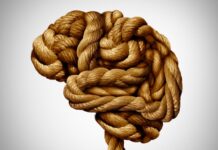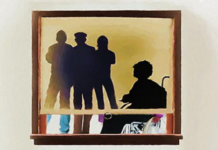My Response to a Defender of Psychiatry
On October 13, an interesting article was published on the Huffington Post Blog. The author is Jessica Gold, MD, a psychiatry resident at Stanford University; the post is titled Inpatient Psychiatry: Not all Needles, Drugs And Locks.
INTAR 2016: A Global Call for a New Paradigm In Psychiatry
“We need a new paradigm,” said Alberto Vasquez, research coordinator of the office of the special rapporteur to the United Nations on the Rights of Persons with Disabilities. “People are clamoring for change. We want to see something else.”
“Navigating” Recovery: Difficult When the Map is a Psychiatric Fraud!
I was recently asked to contrast my views on psychosis and recovery with those offered by NAVIGATE, a US government (NIMH) sponsored program aiming to guide early intervention programs for psychosis. This inspired me to inquire into what NAVIGATE does tell people and families about psychosis and recovery. What I found, unfortunately, was quite disturbing.
What is Holistic Psychiatry?
Holistic psychiatry teaches that within each and every one of us there are great and latent powers, which are beyond the ordinary life. Daily progress in self-development is not the result of accident or chance, rather it comes from a steady practice of working on yourself.
A Racist Movement Cannot Move
Our movement is just as racist (and sexist, and classist, and transphobic, etc.) as any other. There are many reasons why this remains so, yet all of it co-exists alongside the fact that people of color are substantially more likely to be given what are seen as the harshest psychiatric labels, subjected to force, and injured or killed.
Warning: A Psychiatric tsuNAMI is Upon U.S.
Call your legislators to VOTE NO on H.R. 34! Among the most problematic issues this bill presents are multiple provisions for forced psychiatry. H.R. 34 also includes: SAMHSA reorganization, condoning of HIPPAA violations, and a host of other potential human rights violations.
Is the Mental Health System Yet Another Form of Institutional Racism?
With the political tide shifting across the United States and reports of hate crimes increasing daily, examining the systems that promote social control and act as tools of racism is paramount. Is it possible that the mental institution is just another venue for imprisoning Blacks unjustly?
Have You Ever Wondered Why Labels on Supplements are so Vague?
If it wasn’t evident before, these newer regulations make it crystal clear that prescription drugs have a monopoly over the terms “medicine” and “therapeutic benefit,” and that it is very difficult for anything that isn’t a Big Pharma drug to make a therapeutic claim.
My Baby, Psychosis & Me: A lesson in how not to make a documentary...
The issue of how women in crisis are supported after a birth is personally relevant. One day I hope to have a child. As someone whose distress sometimes takes the form of psychosis, I was eager to connect with the stories of women who had trodden this path before me.
How the Technologically-Immersive Culture is Wrecking Our Youth’s Health & Well-Being
The devices that have been left to our kids are not “child’s play,” and should not be treated as such. At any given time, our youth can run up thousands of dollars in bills, view graphic and disturbing sexual images, be awoken with frightening messages, reach anyone, anywhere, at any time, and live an otherwise distracted, detached life.
The ACE Survey is Unusable Data
Do the effects of trauma matter more, or a person's ACE score? I think this is unusable data that harms people when you gather it. Here's why.
Troubled by Individual and Collective Psychosis? Maybe Compassion and Dialogue Could Help!
We need to learn to listen and respond in a caring way to the disturbed and disturbing voices within the population—to really engage with them, while also not believing any lies or distortions or letting destructive forces take over.
Understanding Extreme States: An Interview with Paris Williams
In this interview we will explore often-contentious topics including the non-validity of the biological model, the link between parenting problems and psychosis, and how best to help psychotic people who are fighting both emotional conflicts and a psychiatric system drugging them into silence.
Is Society or Psychiatry to Blame for the “Seriously Mentally Ill” Dying 25 Years...
Adults in the U.S. diagnosed with “serious mental illness” die on average 25 years earlier than others. This is not controversial, as establishment psychiatry and its critics agree. What is controversial is who is to blame?
Antidepressants Increase the Risk of Suicide and Violence at All Ages
Although the drug industry, our drug regulators and leading psychiatrists have done what they could to obscure these facts, it can no longer be doubted that antidepressants are dangerous and can cause suicide and homicide at any age.
Curing Schizophrenia via Intensive Psychotherapy
I believe that an Intensive Psychotherapy can lead to healing and, often, a cure of psychotic states. By cure I mean the cessation of delusions and hallucinations, and a gradual titration off of antipsychotic medication, with the cure lasting—even without continuing psychotherapy.
In a Post-Trump Election World: What is Insanity?
Insanity is often the result of chronic oppression, trauma, and a sense of injustice and hopelessness. Is it possible we are in the midst of a collective psychosis?
Going On or Off Psych Drugs: One Reason or Many?
Many people report having one reason to go off psychiatric drugs—feeling that they just know they need to, sensing they will die if they don’t come off, etc. It is far less common to hear of someone going on psych drugs because they know they must.
Neuroleptic Drugs, Akathisia, and Suicide & Violence
Although there is a great deal of evidence and many case reports detailing the neuroleptic & antidepressant link to suicide and violence, there has not been a definitive large-scale study by American psychiatry of the link between psychiatric drugs and the murder/suicides that are occurring with increased frequency. And the great question is: why not?
What’s the Harm in Taking an Antidepressant?
We know that all drugs have side effects. That’s just part of the deal right? But is it really possible that an antidepressant can cause a sane person to act like a cold-blooded criminal?
Dual-award Winning Play and Film About Human Beings, not Psychopathology
[M]y play, SHADES, and my film, "Is Anybody Listening?" are about people who have experienced major troubles, even trauma or other tragedies, who have dark secrets that torment them, but who use connection, love, humor, and creativity to come through, even to heal. And no one in the play or the film is pathologized.
Exploring Psychiatry’s “Black Hole”: The International Institute on Psychiatric Drug Withdrawal
When Carina Håkansson sent out an invitation for a symposium on "Pharmaceuticals: Risks and Alternatives," some of the world's top scientists, along with experts-by-experience, came from 13 countries to explore better ways to respond to people in crisis.
Mad in Brasil: Part of a Global Effort to Create a New Paradigm of...
It is with great satisfaction and great hope that we are launching our Mad in Brasil website. Ours will be a collaborative effort. We look forward to being part of a global effort that will succeed in creating a new paradigm of care, one that will promote true robust recovery from psychiatric crises.
A Bill to Explore the Relationship Between Veteran Suicides and Prescription Medication
The objective of [these] bills is to combat suicide deaths by ensuring that accurate information is available on the relationship between suicides and prescription "medication". At the present time, 20 US veterans a day are dying by suicide.
Study 329 Trick, Treat or Treximet
Regulators seem all too happy to license ever more dangerous variations or combinations of older drugs already on the market and causing serious problems. This willingness has offered an opening for financial speculators to make a killing speculating on the likely profits these drugs could yield, and getting out of the game before much happens.

































